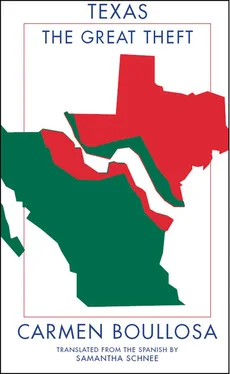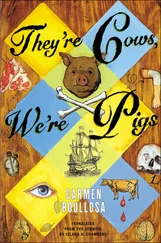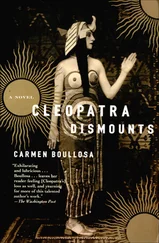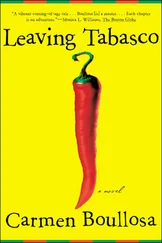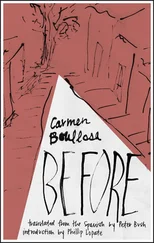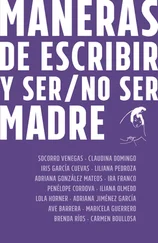In 1848 King wasn’t the only one who went looking for a fortune, convinced that “Americans” had the right to take what belonged to the northern Mexicans by whatever means necessary.
A year after it was founded, Bruneville suffered its first outbreak of cholera. The epidemic claimed the lives of one hundred citizens and almost choked the life out of the region’s economy. Around that time, the rumor was that Nepomuceno robbed a train west of Rancho del Carmen and sold its cargo in Mexico. If it’s true, he was only making up for the many robberies he had suffered.
That same year, to the northeast of Bruneville, Jim Smiley arrived at the camp of Boomerang Mine, which was played out, and discovered his addiction to gambling.
Just across the Rio Grande the city that Brunevillians called their twin, Matasánchez, prohibited several things:
1Fandangos;
2Firing weapons in the street;
3Riding horseback on the sidewalks; and
4Any animals at all on the sidewalks.
The arrogant Brunevillians applauded these measures, saying, “At last they’re leaving their uncivilized ways behind.” Which was a bit much, given that Brunevillians half-drowned in mud each time it rained and suffocated on dust every dry season, their city being so poorly constructed. When all was said and done they were just a handful of palefaces, struggling to cope with a sun that assaulted their senses, yet they acted like they were the center of the world. (Matasánchez, on the other hand, was something to see.)
Bruneville was two years old when an assembly took place at which the new land-grabbers, led by King, played the Great Trick on the Mexicans — a.k.a. the Great Theft — dispossessing them of their property titles by pretending that the new state was legitimizing them. The citizens of Bruneville thought this was a good move; they believed the law was going to protect them, but they were quickly disabused of this notion.
The truth is that the gringos took advantage of several things:
AThe Mexicans didn’t speak English;
BThe Mexicans were given citizenship and told they had rights; but
CThe rights meant zilch unless they could be defended in a court; and
DThe lawyers who were supposed to defend them were thieves, stealing land that had been owned, inherited, or worked by their clients for generations.
The gringos stole and proceeded to act like they were the legitimate owners of what they had stolen.
This is the truth, the whole truth, and nothing but the truth.
This was also the year of the yellow fever.
Bruneville now had a population of 519 (in Matasánchez there were 7,000, half of what there had been before several wars and two hurricanes hit the region before Bruneville even came into being). It’s worth mentioning that most gringo Brunevillians knew nothing about the neighboring town, and could not have cared less.
Bruneville’s third year was just more of the same.
Bruneville was four years old when its population doubled. Pioneers from the north arrived by the boatload, prepared to do anything to make their fortunes. At the same time, penniless Mexicans fleeing the troubles in the south were crossing the river, looking for a way to make a living. More of these folks went north than runaway slaves went south to find their freedom. Bruneville’s reputation as a den of thieves (or a land of opportunity) grew. Where there are thieves there’s loot, the smell of easy money.
The Mexicans set up portable grills on street corners everywhere over which they cooked their own food and more to sell.
In the Rio Grande Valley, the theft of Mexican livestock was a daily practice, like picking herbs or berries in a forest. The branded cattle and shod horses might as well have been mustangs and mavericks, they were treated no differently; and there were plenty of animals for the taking — grabbing strays when possible, taking them at gun point if not. Armed bandits roamed the land, crossing the Rio Grande to drive livestock northward from the south.
Bruneville’s fifth birthday was celebrated with the construction of a lighthouse at Point Isabel, its seaport. A group of Brunevillians proposed naming the lighthouse Bettina, after Bettina Von Arnim, who had recently passed away: “beautiful and wise, the embodiment of the powers of nature.” The Germans, the Cubans, and a pair of Anglos held a memorial service in her honor and placed a gravestone in the community gardens: “She had a remarkable amount of energy, which she radiated upon everyone around her; she was equally at home with people and with nature; she loved the damp earth and the flowers that bloomed in it.” But the Texan authorities were both ignorant and reactionary — though claiming to be republican and liberal they were in fact diehard defenders of slavery — and sent them packing.
Bruneville was six years old when a law was passed prohibiting the employment of Mexican laborers. But the law wasn’t enforced because no one was better at taming and caring for horses, and keeping house too.
When Bruneville turned eight, four dozen camels arrived. Some say they were intended for the ranches, where it was thought their humps would enable them to survive both heat and drought. They were also rumored to be a cover for slave trading; a witness swore to having seen young men, women, and children arriving on the same ship.
Two camels, a male and a female, continued their travels by water, heading upriver on another boat, while the rest hoofed it to their final destinations; except one, a pregnant camel, which was bought by Don Jacinto, the saddler, though it died shortly thereafter of unknown causes, before giving birth. Minister Fear declared this a manifestation of God’s wrath, though the reasons for such wrath remained unspecified. Father Rigoberto said this was absurd; he usually took care not to contradict gringos, but this was going too far. This was the year that Father Rigoberto chose to follow orders of the Archbishop of Durango instead of those of the Galveston diocese, which served only to leave the parish worse off than it had been before.
Before we abandon the camels, it should be noted that witnesses had still another story about how they came to be in Texas: they were imported by the army, which planned to use them against the Indians.
Bruneville was about to celebrate its ninth birthday when Jeremiah Galván’s store by the river burned down. Many people suspected it was arson. There were ninety-five barrels of gunpowder on the second floor of the store. The explosion destroyed the neighboring buildings, blew out all the windows in Bruneville, and even rattled doors in Matasánchez. Soldiers, Rangers, and citizens all lent a hand dousing the building with water from the river, pumped by steamboats, in an effort to control the fire before the flames made it all the way up Elizabeth Street to the Town Hall, razing four square blocks in the process.
At the Smiths’ house, a spark landed on the mosquito net in Caroline’s room; it went up in flames in the blink of an eye (it was very fine netting). Some say it left Caroline a little touched in the head; but others said she hadn’t been quite right since birth.
Another outbreak of yellow fever hit Bruneville on its tenth anniversary. That was the year the legend of La Llorona (The Wailing Ghost) became popular; though most gringos pooh-poohed the story, more than one swore they had seen her walking the streets, wailing, “Ay, mis hijos!” “Where are my children?”
That same year some gringos from the north, where it’s hideously cold, arrived hungry and eager. They were four brothers, skinnier than mine mules, with the last name Robin; all they had in common aside from their last name was their good looks, and their being skinnier than skeletons. The eldest was a redhead. The next one had black hair. The third had hair that was curly and blond. And the fourth, the youngest, barely had any hair at all, just a little transparent peach fuzz.
Читать дальше
